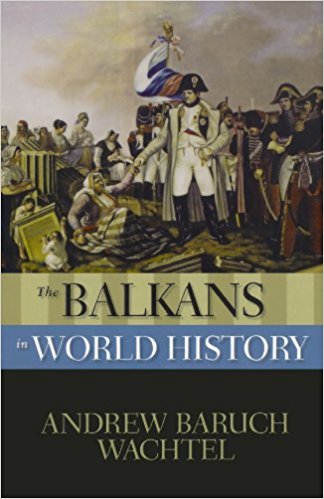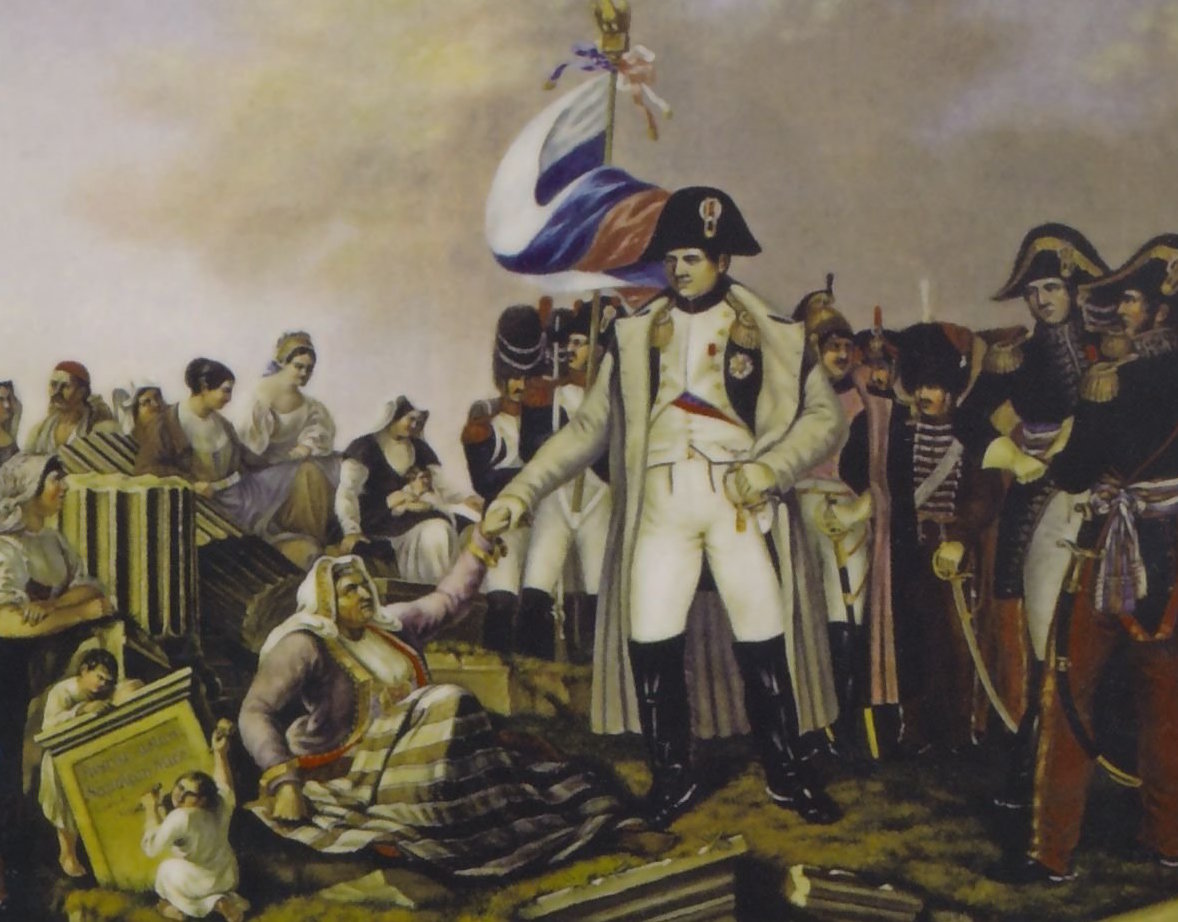

Greece & the Balkans have often been considered the place where Europe and the Orient—both contested categories themselves—meet and overlap. In the twentieth century, this part of the world has been the stage of geopolitical competition among world powers. It has seen states emerge and disintegrate, the rise and collapse of democratic and dictatorial regimes, demographic engineering and multiple wars. Most importantly, understanding the history of this region is necessary in order to understand broader historical processes that have shaped today’s world. To name a few: the collapse of pre-1914 liberalism, democratization, the Cold War and Europe’s political and economic integration.
This course has two types of learning objectives: content objectives and skill objectives. Content objectives consist of the factual and conceptual knowledge (actors, events, processes) about the history of Greece & the Balkans that you will acquire in this class. The assigned readings, lectures and in-class discussions will help you achieve the content objectives.“Skill objectives” refers to what you will be able to do at the end of the course. You will acquire some of the skills that historians have, which can be of use to you even if you do not want to pursue history as a professional path. More concretely, you will develop these skills:
- Formulate claims about the past, while justifying them on the basis of primary and secondary sources.
- Formulate claims about notions that bear relevance in today’s world (eg democracy or political violence) by grounding them on documented evidence from the past.
- Compare and contrast competing narratives about the past.
- Analyze documents as historical sources.
In order for you to develop these skills, you will complete a series of short assignments for which you will receive feedback.
Schedule of Readings, Assignments and Exams
Week 1: From Empire to Nation-States
- Monday
- Introduction, no readings assigned
- Tuesday
- Wachtel, Andrew B. The Balkans in World History. New York: Oxford University Press, 2008. pp. 72-96
- Wednesday
- Mazower, Mark. The Balkans : A Short History. New York: Modern Library, 2000. pp. 115-125
- Carnegie Endowment for International Peace. Report of the International Commission To Inquire into the Causes and Conduct of the Balkan Wars. Washington D. C. 1914. Preface and pp. 1-9.
- “ The project of Dimitrija Čupovski” in Center for Democracy and Reconciliation in Southeast Europe. Nations and States in Southeast Europe. 51
- Thursday
- Jelavich, Barbara. History of the Balkans vol. 2. Cambridge; New York: Cambridge University Press, 1983. pp. 106-133
- Gallant, Thomas W. Modern Greece. London; New York: Arnold ; Oxford University Press, 2001. pp. 129-134
Week 2: Greek-Turkish War & Population Exchange
- Monday
- Primary source analysis #1 due
- Finefrock, Michael M. “Ataturk, Lloyd George and the Megali Idea: Cause and Consequence of the Greek Plan to Seize Constantinople from the Allies, June-August 1922.” The Journal of Modern History 52, no. 1 (March 1980): D1047–66.
- Stewart, M. “Catastrophe at Smyrna” in History Today, July 2004 v. 54.
- Keyder, Ç. “The Consequences of the Exchange of Populations for Turkey” in Hirschon, R. (ed.). Crossing the Aegean: An Appraisal of the 1923 Compulsory Population Exchange between Greece and Turkey. New York, Oxford: Berghahn Press, pp. 40-52.
- Tuesday
- Koker, T. “Lessons in Refugeehood: The Experience of Forced Migrants in Turkey” in Hirschon, R. (ed.). Crossing the Aegean 193-208
- Venizelos, the Greek premier” in Harper’s Pictorial Library of the World War, Volume 9: War Makers and Peace Makers. New York & London: Harper, 1920. 76-82.
- Wednesday
- Kontogiōrgē, Elisavet. Population Exchange in Greek Macedonia : The Rural Settlement of Refugees 1922-1930. New York: Oxford University Press, 2006. pp. 165-185.
- Thursday
- Kontogiōrgē, Elisavet. Population Exchange in Greek Macedonia 185-230.
- Friday
- Historical concept essay #1 due
Week 3: Interwar Political & Economic Crisis, Authoritarianism
- Monday
- Primary source analysis #2 due
- Wachtel The Balkans 97-108
- Mouzelis, Nicos. “Greek and Bulgarian Peasants: Aspects of Their Sociopolitical Situation During the Interwar Period.” Comparative Studies in Society and History 18, no. 1 (Jan. 1976): 85–105.
- Tuesday
- Pelt , Mogens ( 2002 ). “The Establishment and Development of the Metaxas Dictatorship in the Content of Fascism and Nazism, 1936-41” in Sorensen Gert and Mallett Robert , eds. International Fascism, 1919-45 . London, Portland OR : Frank Cass , 143 – 72.
- Wednesday
- Mazower, Mark. Greece and the Inter-War Economic Crisis. Oxford [England]; New York: Clarendon Press ; Oxford University Press, 1991. pp. 274-293
- Mid-term quiz
- Thursday
- Mavrogordatos, George. Stillborn Republic : Social Coalitions and Party Strategies in Greece, 1922-1936. Berkeley: University of California Press, 1983. pp. 141-153
- New York Times articles from 1928, 1936 and 1938
- Friday
- Historical concept essay #2 due
Week 4: World War II & Greek Civil War
- Monday
- Primary source analysis #3 due
- Wachtel The Balkans 108-112
- Packer, E. “Balkan Blitzkrieg – German Attack on Greece” in Hart et al. World War II, an illustrated history vol. 3 Milwaukee: Purnell 1977
- Gallant Modern Greece 8
- Tuesday
- Mazower, Mark. Inside Hitler’s Greece : The Experience of Occupation, 1941-44. New Haven: Yale University Press, 1993. ch. 12
- Wednesday
- Van Boeschoten, Riki. “The Trauma of War Rape: A Comparative View on the Bosnian Conflict and the Greek Civil War.” History and Anthropology 14, no. 1 (March 2003): 41–54.
- Mazower, Mark. Inside Hitler’s Greece 22
- Thursday
- Tsatsou, Iōanna. The Sword’s Fierce Edge; a Journal of the Occupation of Greece, 1941-1944. Nashville Vanderbilt University Press, 1969. p. 41-89
Week 5: Cold War & European Integration
- Monday
- Primary source analysis #4 due
- Pelt, Mogens. Tying Greece to the West: US-West German-Greek Relations 1949-1974. Museum Tusculanum Press, 2006. p. 89-93; 103-130
- Readings TBA
- Tuesday
- Close, David. Greece since 1945: Politics, Economy, and Society. The Postwar World. London ; New York: Longman, 2002. ch. 5
- Wednesday
- Close, D. Greece since 1945 6
- Karamouzi, Eirini. Greece, the EEC and the Cold War, 1974–1979. London: Palgrave Macmillan UK, 2014. ch. 1
- Thursday
- Karamouzi, E. Greece, the EEC and the Cold War, 2
- New York Times article from December 1991
- Essay #3 due
- Friday
- Final Exam
Primary Source Analysis Worksheet
Prompt
An important part of a historian’s job is to analyze primary sources. During the course, you will be asked to analyze four primary sources using this worksheet as a template. The purpose is to practice, and assess, your capacity to extract information from a primary source in a way that allows you to increase your knowledge about the past or, at least, create the basis for further historical inquiry.
Primary Source Analysis Worksheet
- Student Name:
- Date:
- Source title:
- Is the source accompanied by introductory comments, a guide, etc.? If so, what does it tell you about the source?
- Who is the author of the source?
- Who is the intended audience?
- What was the original purpose of this source (entertain, inform, influence, insult, request…)? What makes you think that that is the purpose?
- How did this source end up in your hands? Try to reconstruct the path that it has followed from its creator to you.
- Summary of the source’s main points.
- Is there anything here that you don’t understand? If so, what knowledge are you lacking?
- Read between the lines. Are there any assumptions being made? Is there any information that you can infer, even though it is not formulated explicitly?
- Is this source reliable? Do you see any explicit or potential bias in it? Think about the author; his/her relationship to the facts that he is referring to; the audience; the original purpose of the source, and the context in which it appears.
- How much in this source is probably fact and how much is probably opinion?
- OPTIONAL: What is your own bias as a reader? Is there anything in this source, topic or author that makes you feel in any particular way? Do you have any pre-existing ideological, spiritual or emotional commitments that are relevant for the purpose of analyzing this source?
- How is this source connected to other texts or lectures in this course? Is anything that you know being contradicted, nuanced, enriched, confirmed…?
- How about what you know from readings or experiences from outside of this course? How does this source speak to that?
- In a general sense, what is the historical value of this source?
- Which historical claims could this source support?
- Which other sources or information would you need to combine with this source in order to make a really interesting historical claim? What would that claim be?
Juan Carmona Zabala is a historian of modern Greece in the final stages of his doctoral studies at UC San Diego’s Department of History. He completed an MA in European and Mediterranean Studies at New York University, and a licenciatura in Translation and Interpretation at the University of Málaga, Spain. His dissertation analyzes the expansion of Greek state institutions into new areas of economic life in the interwar period, specifically into those related to tobacco production, industrial transformation, and exports. Carmona Zabala is interested in Greece’s economic relations with western European countries in the 19th and 20th centuries, and in the concrete effects that such relations have had on how people work.
Published on July 2, 2018.




